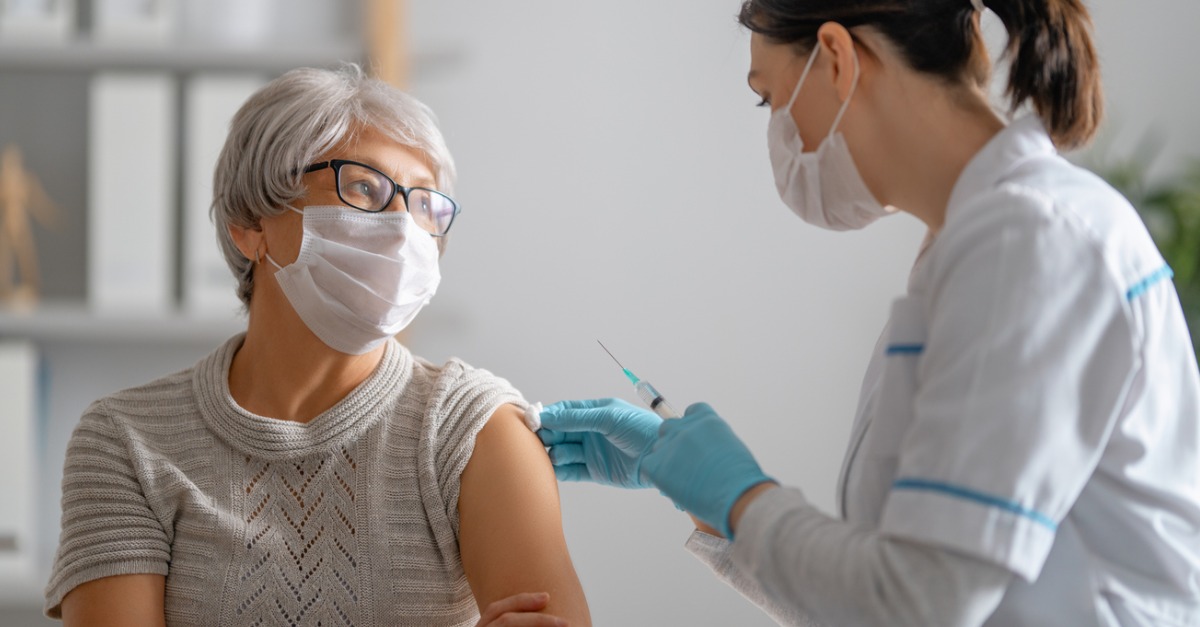There’s a lot of talk out there these days regarding COVID-19 vaccinations. We know it can be challenging to keep up.
Vaccinations are essential tools for preventative care. They protect against tetanus, measles, polio, and other communicable diseases. But they are particularly important when it comes to stopping the coronavirus pandemic.
At YourTown Health, we are passionately dedicated to protecting and improving your overall health. That’s why it’s so important for us to help you separate science from social media clickbait. We want you to know the truth.
Vaccinations Do Not Give You COVID-19
Though it’s true that some vaccines contain trace amounts of the weakened form of a live virus, that is not so in this case. Instead, the Pfizer and Moderna COVID-19 vaccines use Messenger RNA (mRNA), a substance found in all living cells. As MedlinePlus explains, mRNA vaccines introduce a molecule that corresponds to a virus protein (usually found in the virus’s outer membrane). Once this molecule “blueprint” has been injected, your own cells then dutifully follow the new instructions. They begin producing the viral protein, though not the virus itself.
Fast-acting on the defense, your immune system recognizes this protein as an intruder and begins building the antibodies to fight it. This is why some patients experience side effects after receiving the vaccine — but those are signs the shots are working. The antibodies your immune system produces against the new protein protect you from future infection from COVID-19.
The single Johnson & Johnson shot works in a similar way. The main difference is that it uses a disabled adenovirus to deliver the protein-building message to your cells, instead of mRNA.
Vaccinations Cannot Change Your DNA
As explained above, mRNA vaccines do introduce strands of genetic code that give your cells the instructions they need to produce the necessary viral protein and build protection against it. But they do not in any way change your DNA. Many resources, including GAVI The Vaccine Alliance, reassure that the cell nucleus (where our DNA is stored) remains unpenetrated and unaffected by the vaccine.
Research and Testing Were Thorough
It’s true that some vaccinations take years to develop, while all three COVID-19 vaccines were made available relatively quickly by comparison. But University of California San Francisco explains that this was in part because of significant government funding and because so many people enrolled in trials.
The research and development for mRNA vaccines have actually been underway for over thirty years. So, while it’s true that we have not yet had one in the market before, they have been studied for longer than we’ve had cell phones — and by scientists all over the world.
Even more confidence-building? While researching mRNA vaccines, developers also determined that, compared to traditional vaccines, these can actually generate a stronger type of immunity. They stimulate your body to make antibodies as well as immune system killer cells — providing a double attack against the virus.
One Shot of Moderna or Pzifer is Not Enough
Though previous distribution delays and complications of making appointments may have discouraged some from getting their second dose of the Moderna or Pfizer vaccine, even popular sources like Good Housekeeping report it’s important to get both. Think of it as a one-two punch for protection: The first dose primes your immune system and helps it build a virus-attacking “memory.” The second dose ensures the script is more properly memorized.
Studies are still ongoing regarding whether those who have previously had COVID-19 only need one shot, but as the National Institutes of Health reminds us, “the most important thing all of us can do to get this terrible pandemic under control is to follow the 3 W’s—wear our masks, wash our hands, watch our distance from others—and roll up our sleeves for the vaccine as soon as it’s available to us.”
Do you have more questions or concerns about the COVID-19 vaccine? Our team of healthcare professionals is ready and available to help. Visit our website to get in contact or call us at 770-463-4644.

